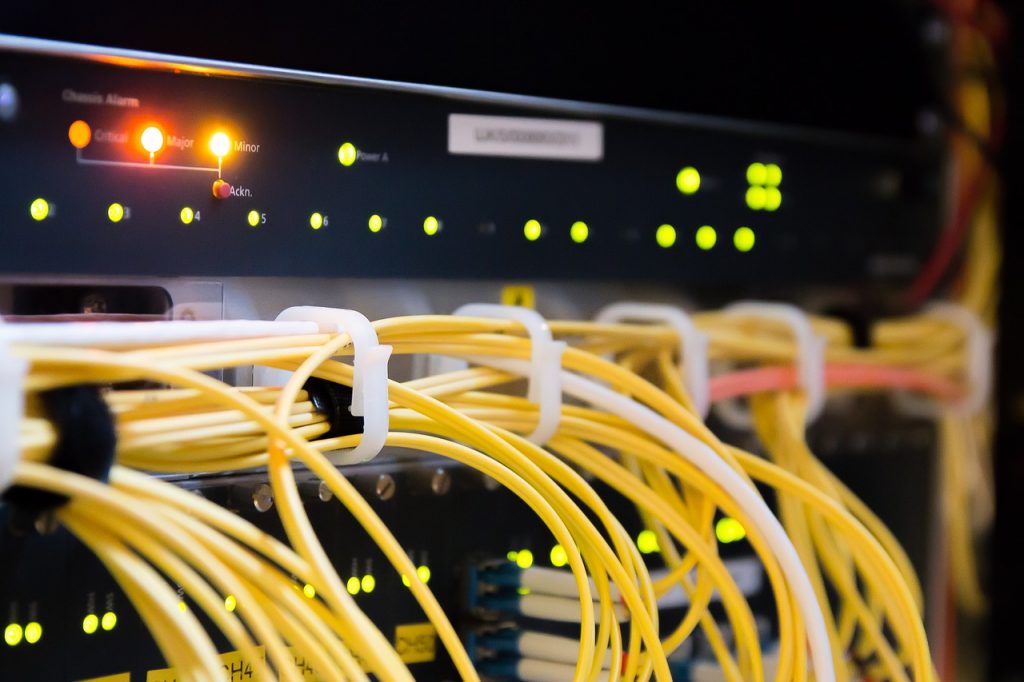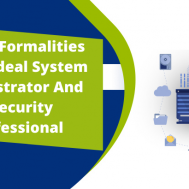We are constantly subjected to change. The world around us, the technologies it is always changing, evolving into something more advanced.
With this, our ethics and responsibilities wherever we go are always subjected to constant change to fit into the new world each day.
This article discusses the ethical formalities of an ideal system administrator and a security professional.
What does a security professional do?
First of all, a security professional or an IT security professional is an experienced personnel who deals with the protection of data, servers and computer systems from unauthorized data or damage.

A security professional is also an important job and requires a great deal of sincerity and dedication.
A security professional is mainly entrusted with the duties of securing important data and networks for a business or an organization. He or she should also be a professional with an excellent grasp in the concerned with a strong IT background like a system administrator.
What does a system administrator do?
A system administrator is a professional who maintains the mechanisms or the operations of an electronic system especially a computer system.
This job requires skilled professionals with an excellent grasp in the concerned subject and with a strong IT background. An aspirant must be able to troubleshoot and resolve any sort of technical problems quickly.
He or She should be efficient. A system administrator candidate must have patience with impeccable communication skills. You have to tutor and update its teams and users on various models and technologies released today.
Role of an ideal security professional
An ideal security professional has a lot of responsibilities on his or her shoulders. He or she is entrusted with a business’ or an organization’s confidential data which shall not be compromised at any costs.
An interested candidate shall positively be competent enough to understand and handle the duties of an ideal security professional.
Moreover, with changing times, the roles and responsibilities are drastically changing as well. With various technologies on the rise, an ideal security professional must also be prepared for crisis.
Some of the major roles of an ideal security professional or a security administrator is listed below:
- Monitor security breaches or any potential cyber attacks.
- Upgrading security for potential Cyber-attacks (firewalls, etc.) and planning recoveries in case of a cyber breach.
- Updating security software in order to prevent loss of valuable data.
- Conducting stimulatory tests (like potential cyber-attacks etc.) to evaluate the performance and necessary steps during a real-time crisis.
- Keeping track of updates on new IT trends and implementing them for an effective security system.

Code of Ethics of an ideal security professional
A candidate applying for the designation of an IT security professional must be sincere, dedicated and productive.
Listed below are some of the code of ethics which is mandatory for any individual who wants to work in this sector:
- As a security professional, one must educate themselves thoroughly about the laws and policies and strictly abide by it
- A security professional must be competent in understanding the responsibilities bestowed upon him. He or she must be firm in decision making and should be of clear intent.
- As a security professional, he or she must respect his or her colleagues and promote a healthy and a safe environment.
- He or she must refrain from controversies, and issues that might lead to an inappropriate conflict of interests.
- Professionalism is mandatory. He or she must promise to treat employees fairly and equally.
- As a security professional, he or she must be trustworthy. He or she must understand his or her responsibilities and refrain from illegal practices.
He or she must maintain the confidentiality of the data that will or might be accessed by the.
- A security personnel must maintain the decorum of the workplace. He or she must abstain from the use of obscene language and keep away from biased ideologies.
- Communication is crucial. An ideal security professional must be an expert in communication skills.
He or she should be able to communicate and teach his or her fellow employees about the new trends and other work-related projects.
- As an aspiring candidate for this designation, he or she must be patient.
- An ideal security professional must promise to be honest while business dealings and in every aspect of his work.
- A security professional must promise to keep themselves updated on the new IT trends and always be productive and innovative by suggesting fresh ideas.
- A security professional should obviously seek help from his or her fellow colleagues and provide timely reports to his superiors in the management department.
- He or she should be resourceful as a candidate aspiring to be an IT security professional.

Role of an ideal system administrator
The responsibilities of a system administrator are diverse and wide-ranging and vary from companies to companies.
Apart from just maintaining servers and computer systems, they also have to cater to duties like programming, scripting and so on.
Below listed are some of the responsibilities which are mandatory for a system administrator to perform:
- The role of a system administrator includes installation and configuration of software and hardware.
- The role of a system administrator also includes managing technological servers and technological tools required.
- This job requires to set up accounts and workstations.
- A system administrator has to keep the performance of the servers or the machines in check and maintain them accordingly.
- Also, this job demands for the skills to troubleshoot technical faults and power outages.
- A system administrator also has to ensure security over the network of servers or the machines by using access controls, backups and firewalls.
- A system administrator predominantly has to upgrade the systems timely with new and upgraded software or models.
- A system administrator also has to be a patient teacher. An ideal system administrator should have the expertise and skills to train staff and keep them updated on new technologies.
- A system administrator also has to maintain and write technological documentation, manuals and IT policies.
ALSO READ : TOP 10 TRENDS TECHNOLOGY FOR NEW DECADES
